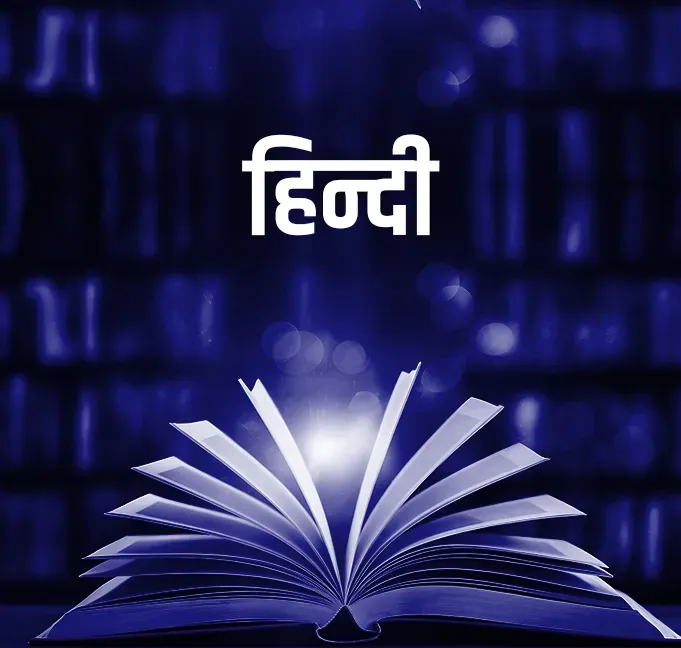Every year, twice, thousands of candidates appear for the JEE Mains examination. Conducted countrywide by NTA, it is the first test out of a two-step examination process that selects students to get into some of the top engineering colleges of the country, namely, the IITs and even NITs.
While the exam itself continues to be one of the most rigorous academic hurdles you might have to go through, it poses quite liberal eligibility criteria. There is no age limit to appearing for the exam, for example.
If you pass your class 12th board examination in a particular year, you can choose to appear for the JEE Mains exam that year itself and the following two consecutive years. You have 6 attempts in total to clear the JEE mains exam.
Let’s explore in more detail the nitty-gritty of JEE mains to help you understand better!
Get Complete Details From Expert
Exam Structure

JEE mains filter out candidates for JEE Advanced, the final step to get into the prestigious IITs and NITs. It serves as a screening test for three courses:
- B.Tech/B.E
- B.Arch
- B.Planning
The selection tests for each course are for 3 hours, and they are computer-based. Let’s look at the exam pattern of each of these selection tests so that you can gauge difficulty levels and marking schemes to perform better:
Know More About Our Online ProgramsJEE Mains for B.Tech/B.E (Paper 1) Overview
Subjects Covered: Physics, Chemistry, Mathematics
Total Questions: 90 (75 to be attempted)
Marks per Question: 4
Scoring: Correct Answer: +4, Wrong Answer: -1
Maximum Marks: 300 (75 questions * 4 marks)
Structure: The paper is divided into two sections:
- Section A:
- Consists of 60 Multiple Choice Questions (MCQs)
- 20 questions each from Physics, Chemistry, and Mathematics
- Compulsory to attempt all questions
- Section B:
- Contains 30 questions
- 10 questions each from Physics, Chemistry, and Mathematics
- Students can choose to attempt any 5 questions from each subject
JEE Mains B.Arch/B.Planning (Paper 2) Overview
Modes: Both online and offline
Paper 2A: B.Arch (Bachelor of Architecture)
Subjects: Mathematics, Aptitude, Drawing
Total Marks: 400
Structure:
- Mathematics (Online):
- Total Questions: 30 (20 MCQs, 10 numerical)
- Questions to Attempt: 25
- Scoring: +4 for correct answer, -1 for wrong answer
- Maximum Marks: 100
- Aptitude (Online):
- Total Questions: 50
- Scoring: +4 for correct answer, -1 for wrong answer
- Maximum Marks: 200
- Drawing (Offline):
- Total Questions: 2
- Scoring: Each question carries 50 marks
- Maximum Marks: 100
Total Questions: 82
Questions to Attempt: 77
Paper 2B: B.Planning (Bachelor of Planning)
Subjects: Mathematics, Aptitude, Planning
Total Marks: 400
Structure:
- Mathematics (Online):
- Total Questions: 30
- Questions to Attempt: 25
- Scoring: +4 for correct answer, -1 for wrong answer
- Maximum Marks: 100
- Aptitude (Online):
- Total Questions: 50
- Scoring: +4 for correct answer, -1 for wrong answer
- Maximum Marks: 200
- Planning (Online):
- Total Questions: 25
- Scoring: +4 for correct answer, -1 for wrong answer
- Maximum Marks: 100
Total Questions: 105
Questions to Attempt: 100
Exam Syllabus

To perform well in any exam, you must know the syllabus by heart.
Paper 1
For JEE Mains Paper 1, as mentioned above, you get questions from Mathematics, Physics, and Chemistry.
The syllabus for maths contains chapters on sets, relations and functions, matrices and determinants, permutation and combination, and more.
In Physics, the course has a diverse range, with topics covering kinematics, laws of motion, work, energy, and power, etc.
Chemistry has an extensive syllabus. Apart from basic chapters like atomic structure, topics like coordination compounds, hydrocarbons, and more are covered under organic and inorganic chemistry.
Paper 2A
For JEE Mains Paper 2A (B.Arch), you will receive questions on Mathematics, Aptitude, and Drawing. For JEE Mains Paper 2B (B.Plan), you will receive questions on Mathematics, Aptitude, and Planning. The syllabus for Mathematics and Aptitude is identical for both papers. However, the syllabus for Drawing and Planning is different for each respective exam.
In Maths, you have the same topics as in JEE Mains Paper 1, such as sets, relations and functions, differential equations, integral calculus, etc.
For Aptitude, you are tested on awareness of persons, buildings, materials, etc., and on three-dimensional perception.
In the Drawing section, you are expected to be proficient in sketching scenes from memory, preferably of urbanscape like marketplaces, etc.
In Planning, you are evaluated based on your general awareness and thinking skills.
You can access the full syllabus under NTA’s official website link: https://jeemain.nta.ac.in
Registration Process

To avoid any hiccups on D-day, it is important to complete your registration of your JEE Mains application form perfectly. So, here is a step-by-step guide on how you can register for this exam:
- Open https://jeemain.nta.nic.in/
- Create an account using your name, mobile number, email ID, and other such basic details.
- Set a password and select a security question for future login attempts.
- Once you’ve registered successfully, an application number is generated.
- You can use this application number and the password you set previously to access your application form.
- Once you’ve gained access, start furnishing your application with details such as your address, guardian’s name, etc.
- After this, you will be asked to upload 4 documents: your photo, your signature, your 12th board mark sheet, and your 12th board certificate.
- When you have completed uploading documents, you will be redirected to a payment gateway where you finally pay the application fees and complete the registration process.
- Make sure you download the confirmation page once payment is completed, as it has important credentials like your application number.
- Now, you can log in to your profile and check your application status or other important details anytime.
Check out Our Online ProgramsAdmit Card Download

Once you receive notification that admit cards or hall tickets have been released, go to the official JEE Mains exam website: https://jeemain.nta.nic.in/. Log in to your account with your application number and date of birth. Download the hall ticket from there.
How to Check JEE Mains Result?

To access the JEE Mains scorecard, log in to the official JEE Mains website with your application number, date of birth, and security pin. Click the “view scorecard” option to download the result.
Take the next step in your career ?
Conclusion
Every year, millions of candidates apply for JEE Mains, but only a handful qualify for JEE Advanced, the final test round to get into the top engineering colleges in the country. So, you should look beyond and broaden your options.
In this context, Amity Online can provide you with an effective solution. With Amity, you can get your undergraduate degree anytime, anywhere, under the mentorship of a world-class faculty. The flexibility of the programs, along with campus provisions for library access or networking opportunities, helps you access a holistic learning experience. Don’t let this opportunity pass you by! Check out Amity Online today!



